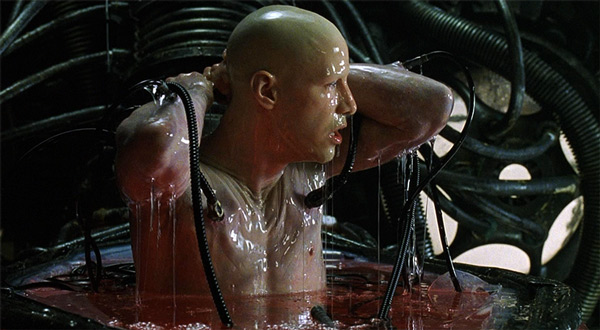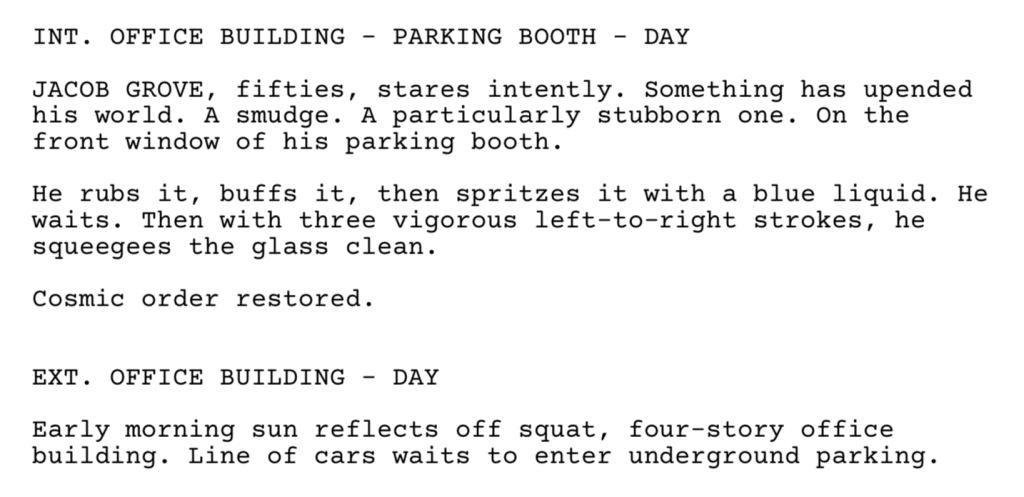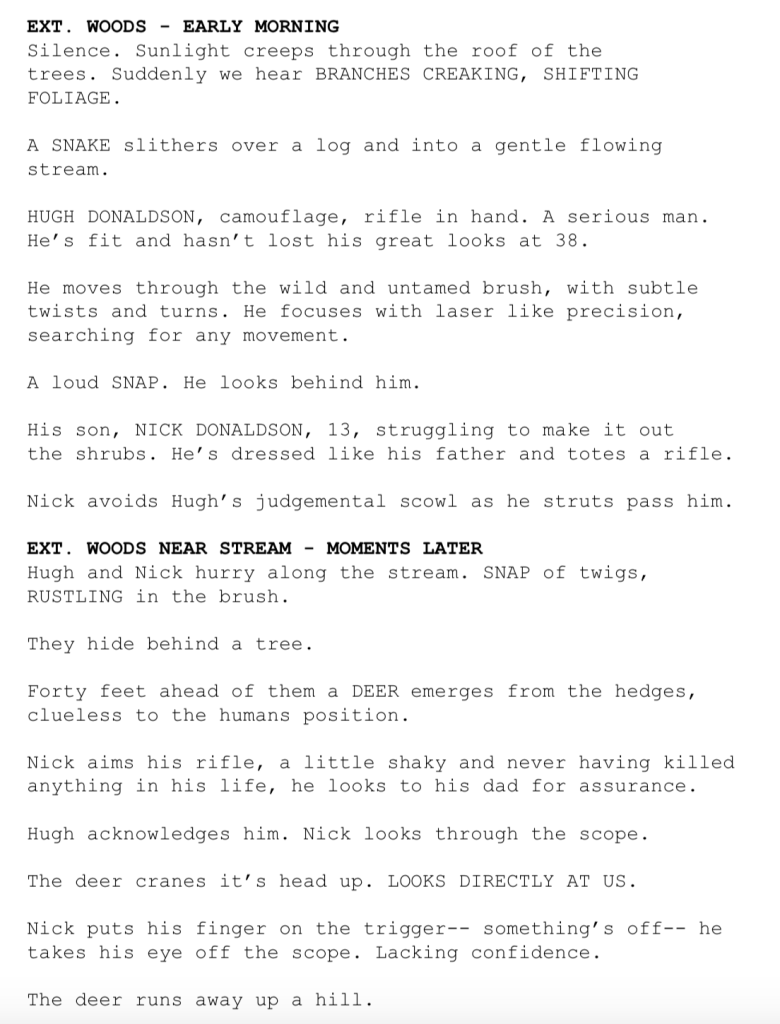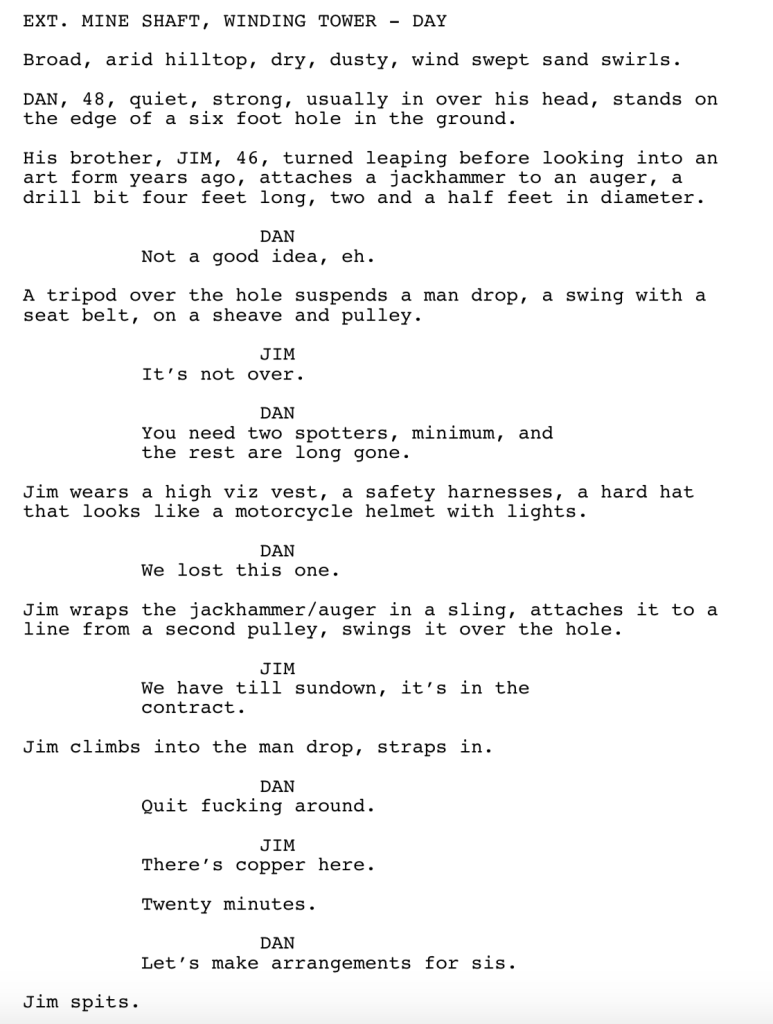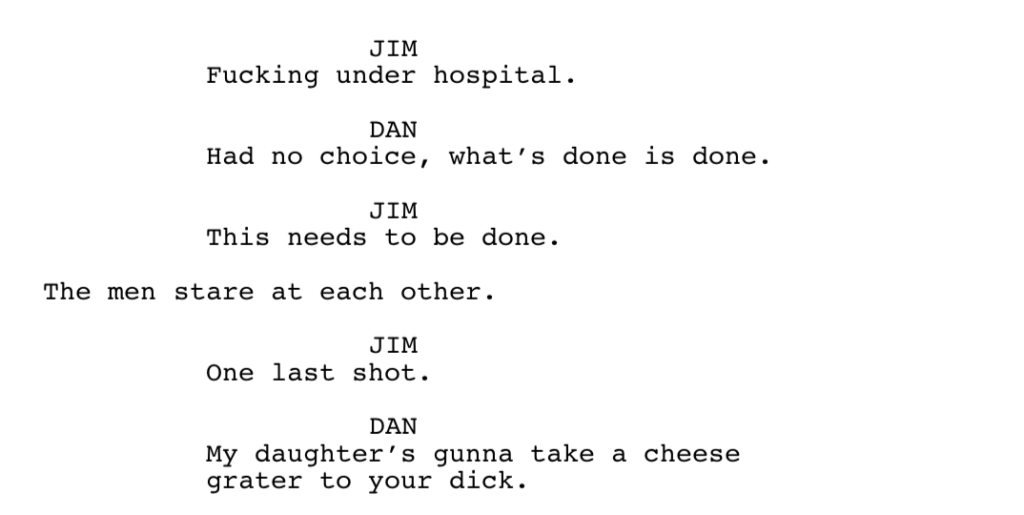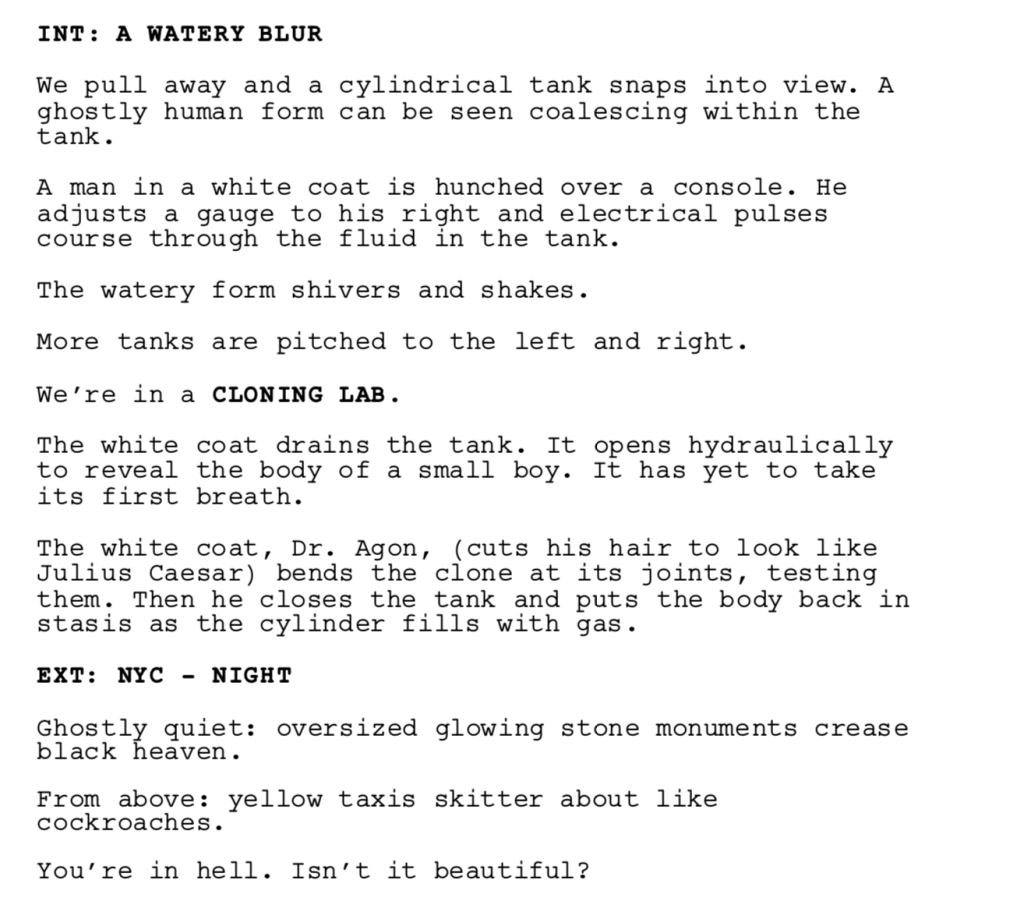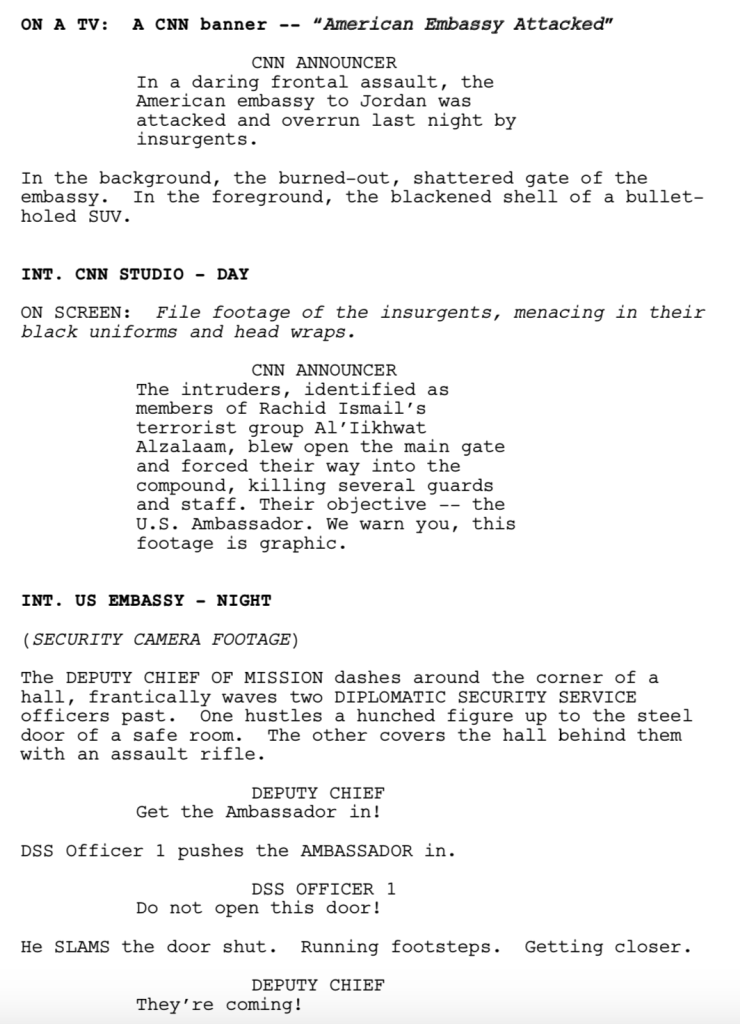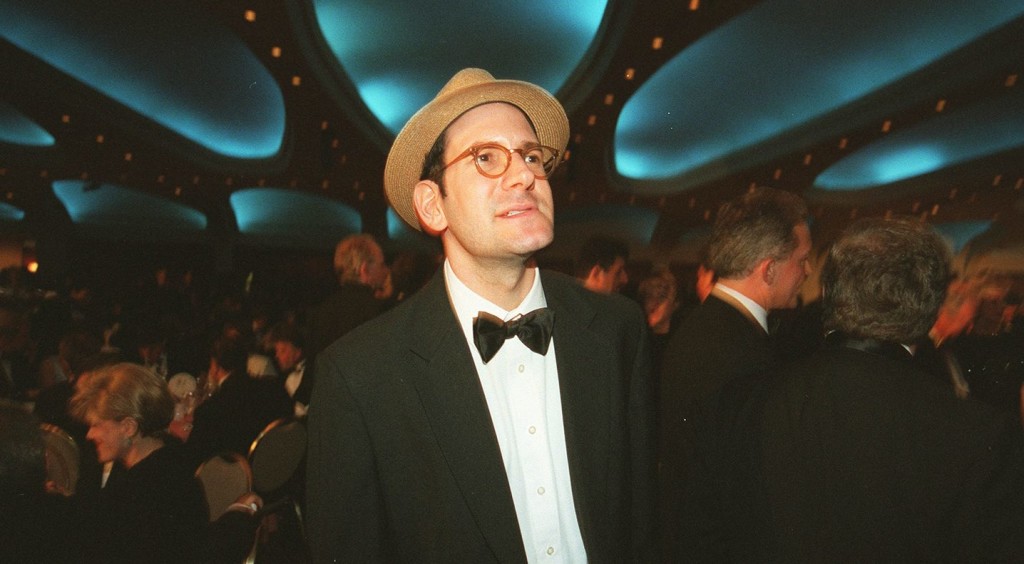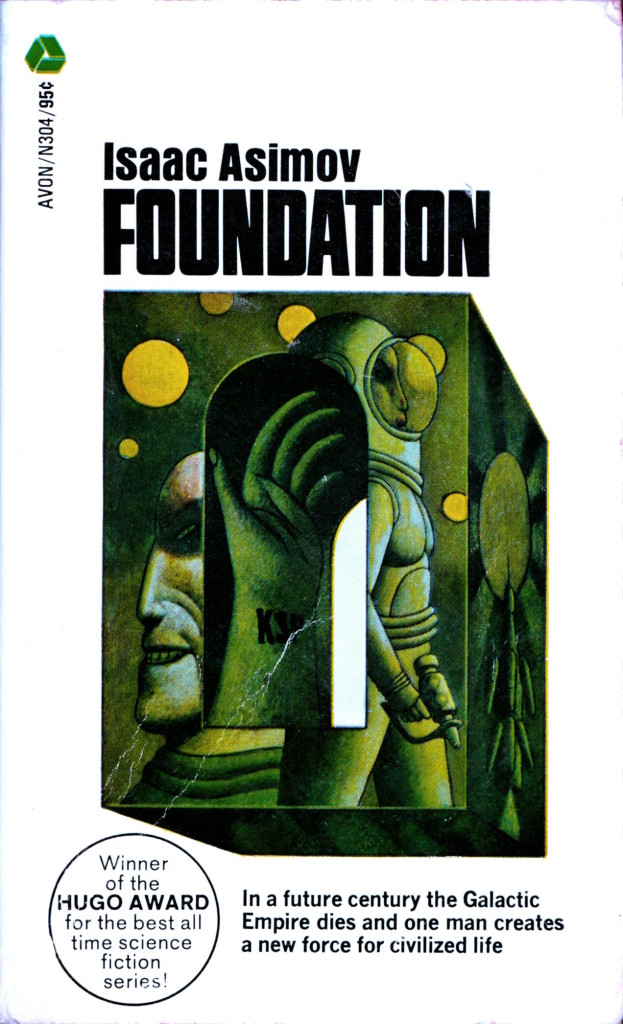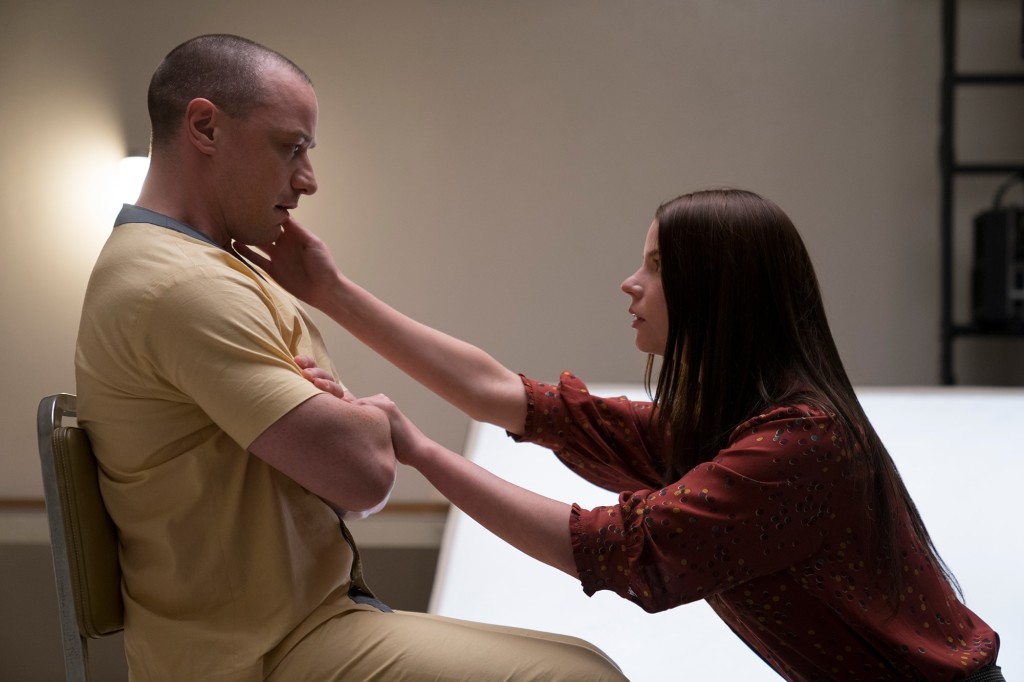It’s back. Live breakdowns of First 10 Pages submissions! For those of you unfamiliar with the First 10 Pages Challenge, you can go back to the original post here. You can also check out my breakdown of five entries from last week. The short of it is you’re trying to write 10 pages that are impossible to put down. In order to emphasize this, I will stop reading someone’s entry the second I get bored. If that’s the first line, that’s the first line.
Now there have been some commenters who question the point of this exercise. Don’t listen to them. This exercise is one of the most important you will ever learn when it comes to screenwriting. It is teaching you two invaluable lessons. The first is the importance of grabbing the reader right away. And the second is being able to write an un-put-downable scene on command.
I’m hoping today’s analysis helps you understand where a reader might lose interest and why. In case you were wondering, I’m picking these entries at random. I’m not reading through scripts and finding the best examples for my argument. If your pages show up today, use the feedback to go back in and improve them. Or write something better. Most writers never experience this – someone detailing, out loud, why they gave up on a screenplay. So take advantage of it and get better.
You have until Sunday, February 10th, 11:59pm to submit your First 10 Pages. If you’d like to do so, send them to carsonreeves3@gmail.com with the subject line “FIRST 10 PAGES.”
Let’s get started!
The very first thing I read here is a character introduction. However, there’s no character description. Without a description, I’m imagining the most generic version of a man possible. Here’s a description of the main character from yesterday’s Black List script: “Drudge has a twitchy demeanor and horrific posture. He talks with a weird sense of confidence despite a nasally voice and the occasional stutter.” Do you see how big of a difference that makes?
Next, the character’s big action in the first image of the movie is to rub away a smudge. Now I know what the writer is thinking in this moment. He’s using it to tell us something about this character. And that’s a good instinct to have. But it doesn’t matter if the action itself is boring. The second we then cut to a shot of the sun, I’m finished. This is the opposite of immediately capturing our interest. You have to hook us right away. You can’t start with a boring action and follow it up with a static establishing shot.
What is it with writers and the sun? A reposting of Brenklco’s best comment ever: “Pretty sure that a reader who’s had to read thousands of screenplays no longer gives a f&%k what the sun and moon are doing or how they’re doing it.” We also have no space between the slugline and the action lines. Since all screenwriting programs do this automatically, this tells me the writer doesn’t have a screenwriting program, and therefore isn’t as serious about the craft. But even if you’re just broke (which some writers are – I get it), you should still know that you can’t do this.
The good news is, something is happening. We’re moving through the woods. We’re obviously pursuing something. And that’s enough to get me to keep reading. I want to find out what these characters are after. Unfortunately, the second it’s revealed that they’re after a deer, I’m out. I’ve read hundreds of deer-hunting scenes, many of those with a father and a son (and the son usually lacks the courage to shoot). I was hoping for something more exciting and original.
Before I even get to the first line of action, I’m confused. The slugline says this is a “mine shaft” and a “tower.” Aren’t those two different things? One’s underground and one’s way above it? I was literally about to give up on the slugline. But I figured, mine’s are interesting. I don’t encounter them in screenplays that often, so I keep going. I like that Jim is about to do something dangerous. That’s the one thing keeping me reading here. The strange double-space between Jim’s final line of dialogue on the first page throws up a red flag. Dan talks about arrangements for their sister. I’m not sure what that means. What arrangements? Seems strange to bring up now either way. The daughter line with the cheese grater to the dick is a jarring contrast to everything that’s been said so far. It sounds more like a comedy script line. So that’s where I stop.
I’m glad this one came up because it’s a common mistake writers make. The writer here starts out with a scene that has the potential to be interesting. A human is being born artificially. But they don’t do anything with it. All that happens is this clone is born and they’re put into a chamber. That’s not interesting. Think about how Neo is woken up in The Matrix. He’s bald, he’s in this endless tower of clones, a machine comes up and detaches a mechanism from his head, he’s flushed down some tube. Something is HAPPENING in that scene. This is just a quick empty moment of a clone being born. There’s not enough going on to hook us. I’d rather the writer build an entire scene around this than simply showing us a brief non-contextualized moment, a moment that is, quite frankly, one we’ve seen before.
I want to make something clear about this page. It’s fine. It’s completely fine. There’s nothing wrong with it. But that’s not the exercise. The exercise is not to write something that’s fine. It’s to write something that a reader can’t put down. It would make your head spin to know how many scripts I read that start with terrorists doing something. So the second I see that this is another one, I’m already checking out. I can’t figure out if experiencing this through CNN footage is better or worse than experiencing it as it happens, but I don’t think think it matters because this is a garden variety terrorist attack to begin with. If you want to give us a terrorist attack, it has to be a type of attack we haven’t seen before. Or it has to be executed in a way we haven’t seen before. Or preferably both. Another issue here is that no character is introduced. So there’s no one to latch onto and care about. This might as well be CNN on my own television. So again, there’s nothing wrong with this page. But that’s not the goal. You’re trying to blow the reader away. Make it impossible for them to stop reading.
For those wondering, I’ve read about 30% of the entries so far. And to answer the obvious follow-up question: I haven’t made it through an entire 10 pages yet. Mainly because writers are making mistakes like the ones highlighted in today’s entries. Hopefully, this gives you some insight in to how to make your pages better. Get back in there and keep trying!
Genre: Biopic
Premise: The story of how oddball internet reporter Matt Drudge broke the Lewinsky Scandal and nearly took down a presidency, all from a desktop computer in his one-bedroom apartment in Hollywood.
About: Today’s script is the 4th most liked script of 2018. Cody Brotter is a Boston University graduate who’s written for TV, most notably on the show, Comedy Knockout. He also has a podcast, Hollywood Terriers, where he interviews fellow BU graduates in the entertainment industry.
Writer: Cody Brotter
Details: 118 pages
Today we have a totally original screenplay idea that was conceived 100% from someone’s imagination. Just kidding. We have another biopic from the Black List. Writers be working hard on ideas these days. There will come a time – it may be after the Apocalypse with only 20 people left on earth I’m sure – but there will come a time where writers once again attempt to create original stories. Until that time, it’s a biopic world. The rest of us are just living in it.
With that said, if you want to get on Franklin Leonard’s Biopic List, there are two things you can do to improve your chances. One is to find an underdog story. And two is to paint your hero as sympathetically as possible. “Drudge” does both. And once you get past the frustration you feel from having to read another biopic, you realize it does them quite well.
We’re introduced to Matt Drudge through his parents, both staunch liberals who are getting divorced after 15 years. The two are in court for a custody hearing. Except this isn’t your average custody hearing. Instead of the parents fighting FOR custody of their son, they’re fighting to get rid of him. The dad is too busy starting a new family to take him and the mom can’t keep up with Drudge getting in trouble. The judge stares on, flabbergasted. He’s never seen this before.
Cut to a decade later (the early 90s). Twenty-something Matt has moved to Hollywood with no money and managed to beg his way into a Gift Shop job at CBS Studios. When his father flies in for business (not for him), he’s so disgusted by his son’s life, he buys him a computer out of pity. This was right when AOL was sweeping the nation and everyone was talking about getting on this “world wide web” thing.
Little did Matt know, that computer was about to change his life. Through his job, Matt would hear CBS employees gossiping about box office results and who was getting fired, so he started a little newsletter (The Drudge Report), sending this information out to people. It wasn’t long before people began e-mailing HIM to get on the list.
A young conservative named Andrew Breitbart called Matt to meet, and was soon working for him, developing a web page version of the newsletter. The more politically-inclined Breitbart encouraged Matt to include more political news, and that’s where things got interesting. Back then, everyone was still operating by the journalistic rules that had been set up for over a century. You couldn’t just print something. You had to do your “due diligence.” Well, this wasn’t a publication. It was an internet site. So if Drudge got a hot scoop, he could just post it.
A group of young female conservative pundits (pundettes) in D.C. (Laura Ingraham, Ann Coulter, and KellyAnne [soon to be] Conway) recognized they could use this to their advantage. The three were trying to take down Bill Clinton through all of his philandering but the Clinton-loving liberal media were dragging their feet about posting these stories. So they asked Drudge to post them. And he did.
This began a two-front war. The first with the White House and the second with traditional media. You couldn’t just post a story like that, the news networks said. That was… that was… well, you just couldn’t! But Drudge did. And then, when the bombshell story of Monica Lewinsky hit the airwaves and the traditional media still wouldn’t report it (supposedly due to liberal bias), Drudge was all too happy to. And that’s how a little nobody reporter working out of a one bedroom apartment broke one of the biggest news stories in history.
Drudge is a good screenplay mainly because this is a good story. It’s a strange depiction of a person though. I can’t tell if Brotter loves or hates his main character. He starts off painting him with a sympathetic brush. Who’s not going to root for a guy who was abandoned by both of his parents? However, Brotter relentlessly makes fun of his hero’s thinning hair, repeatedly uses the word “creepy” to describe him, and relishes in his lack of friends.
I just don’t understand why you would write a story about somebody you detested. This is why I’m uninterested in seeing Vice. Both Adam McKay and Christian Bale call Dick Cheney the devil. Well if you can’t look at someone objectively, how are you going to portray them accurately?
And yet Drudge works. At least for me it did. Part of that is I went through something similar on a smaller scale. For example, I must’ve received hundreds of e-mails when I started Scriptshadow from people telling me “You can’t do this.” And when I asked them why, the answer was basically, “because it’s always been done this other way.” And I was like, “Well tough cookies. Things are changing.” There will always be resistance to change but, in the end, you can’t change progress.
I do think the script missed some opportunities though. I liked this idea of Drudge’s parents being liberals and Drudge running a conservative website to get back at them. But it’s only casually explored. If Drudge wasn’t actually conservative, but doing this solely to stick it to his father, that would’ve made his character a lot more complex. Maybe with a few more drafts Blotter can explore that angle more.
But by far, the biggest takeaway from this script is the importance of creating sympathy for your hero. You want to do that right away. The cheap way is to have your character give a homeless person a 20 dollar bill (or some do-gooder equivalent of that). Good screenwriters don’t go the cheap route, however. They work harder. Here we create sympathy for Drudge without even meeting him. We see his parents in court trying to pawn him off on each other. Right then, we feel sorry for this guy, and we haven’t even met him yet.
I will continue to rail against biopics. I’m so bored by the genre at this point. But the underdog nature, the high stakes, and the relentless pace of this script made it worth the read.
[ ] What the hell did I just read?
[ ] wasn’t for me
[xx] worth the read
[ ] impressive
[ ] genius
What I learned 1: This was a great character description. You should aim for a character description as specific as this every time out: “Drudge has a twitchy demeanor and horrific posture. He talks with a weird sense of confidence despite a nasally voice and the occasional stutter.” I know exactly who this guy is after that description.
What I learned 2: The most clever thing Brotter did here was identify that there are major controversial players today (Laura Ingraham, KellyAnne Conway, and Ann Coulter, an Andrew Breitbart) who played a big part in a story that happened a long time ago. This makes an older story feel current. So if you’re going to write a biopic about someone in the last 30 years, it will have more punch if some of the players in that story are relevant today. For example, if you’re writing a biopic about Rudy Giuliani centering on 9/11 (oh God, I hope I’m not giving anyone ideas), you know you can include a young Trump in that story.
Genre: Sci-Fi
Premise: In the far-off future, where the galaxy is protected by an equation that watches over them, an evil force arrives, putting the equation, and all who believe in it, in doubt.
About: The Hugo award-winning Foundation series was said to be one of the influences for George Lucas’s Star Wars, and you can see why almost immediately as its main villain, The Mule, is tall and hidden behind a suit and mask. A defining image even has The Mule choking someone, their feet dangling just off the ground (Foundation also has a “Galactic Empire”). Hollywood has been trying to figure out how to turn Foundation into a movie forever, and the property has endured many failed adaptations. This is one of those adaptations, written in 2004, by Jeff Vintar, for Fox. Vintar was hot at the time, having just written a movie (I, Robot) for the biggest movie star in the world (Will Smith). Unfortunately, Vintar does not have a credit since then. A reminder of just how brutal this town is!
Writer: Jeff Vintar (based on the Foundation series by Isaac Asimov)
Details: 110 pages
We’ve been talking about Hollywood’s recent obsession with short stories lately. Well guess what? Foundation started off as a series of short stories! I’m telling you, folks. You want to get Hollywood’s attention? Write a kickass short story. And if nothing comes of it but you still love your story, do what Asimov did – expand it into a novel.
I’ve actually tried to read Asimov’s Foundation series several times, only to fall into the Roma trap. I read for five minutes, get bored, try again the next day, read for 10 minutes, get bored, try again the next day. Ultimately it was the mythology that stopped me. It was goofy and weird and hard to get into. Before you throw your weirdo mythology at me, you have to rope me in with the characters. Star Wars doesn’t start with someone explaining the Force. The Matrix doesn’t start with someone explaining the Matrix. But Foundation starts with someone explaining Foundation, and it reads like the musings of the weird kid draped in black in the back of your class who eats his dandruff.
Doctor Hari Seldon is standing trial for spreading fear amongst the people. He has predicted, due to his expertise in “psycho-history” (what???), that within three centuries, the quadrillion human beings spread throughout the galaxy will all die. However, if humanity listens to Seldon’s equation, the galaxy will survive this implosion and rise again in 1000 years. The judges think this is whack, so they kill Seldon.
However, Seldon’s psycho-history equation is followed anyway, and 1000 years later, humanity is thriving, just like he predicted. This equation, guarded by an elite political force known as the Foundation, keeps writing the future, and telling the Foundation what to do so that peace and prosperity remain. Unfortunately, the Foundation becomes too dependent on the equation, and when a man named The Mule takes over an entire planet, they have no idea what to do.
Bayta, a spy working against the Foundation, is on that planet. After the Mule loses his main sidekick, a Gollum-like character named Magnifico, Bayta finds and befriends him. A Foundation officer named Pritcher is also on the planet, as he happens to be looking for Bayta so he can arrest her. But after the Mule takes over, the two are forced into a shaky alliance. The three of them fly off in Pritcher’s ship, and head to the Foundation headquarters on Terminus, where Seldon’s equation resides.
Once on Terminus, Bayta tries to tell the Foundation dummies that their equation doesn’t work, that The Mule is coming for them. But they don’t believe it. The equation hasn’t let them down in centuries. Why would it now? Needless to say, they eat their words. But not the way they expect to. A shocking arrival from someone other than the Mule informs them (spoiler!) that they are not being protected by the equation, but rather, the culmination of it, a sacrifice that will ensure peace and prosperity reign after they are destroyed.
Foundation is a script with a high burden of investment. You have to learn a complex mythology if there’s any chance of enjoying the story. This is the challenge any fantasy or sci-fi writer faces: Keeping things entertaining while explaining all the rules. Which is why you rarely see these scripts succeed as specs.
Nobody in Hollywood wants to learn a giant new mythology in a spec script. They’re only okay with it when it’s a book adaptation. This is why I nudge sci-fi and fantasy writers away from giant stories. If you love these genres, find a tighter more contained story to tell. Source Code over the next Star Wars. Bright over the next Lord of the Rings. There are a few instances of heavy mythology specs succeeding. Killing on Carnival Row comes to mind. But for every 1 that shines, 100,000 are rejected. So proceed with caution.
To Vintar’s credit, once he establishes the rules, the story moves well. I liked that mere seconds after setting up Bayta, her planet is attacked. It’s not easy to make these giant lumbering stories move quickly. In the book, I’m sure we’re cutting between several different planets, setting up numerous plotlines and characters before this happens. But Vintar understands that this isn’t a book. It’s a movie. And in a movie, the engine has to run at a higher RPM.
But where the script really excels is in the characters. Each character had more going on than what was on the surface. For example, Bayta was a loving honeymooner. Until we found out she was a spy trying to take down the Foundation. Pritcher was a businessman. Until we found out he was a spy trying to take down Bayta. The Mule also had secrets, as did Magnifico and Hari Seldon. What you saw wasn’t always what you got. And that kept things interesting.
In fact, it led to the best moment in the script (MAJOR SPOILER). When we find out Magnifico is The Mule. Now you’re probably wondering how someone who’s read everything could be duped by what, in retrospect, seems like something I should’ve figured out. Especially since Magnifico was acting so sketchy the whole movie. The truth is, Vintar cleverly introduces The Mule searching for the escaped Magnifico. So how could they possibly be the same person? If you’re ever going to pull a surprise character reveal, you have to set up a moment earlier in the script that ensures we’ll never make that connection. And that’s exactly what Vintar did with these two.
The only problem with Foundation is the lack of imagination regarding the future itself. 1000 years in the future and we’re all still biological beings with an 85 year lifespan? And pretty much every aspect of life is exactly the same as it is today, the only difference being we have more planets to live on? This is the problem with setting things too far in the future. While it’s easy to imagine what things will look like 100 years from now, it’s impossible to imagine what they’ll look like 500 years from now. So you should think long and hard about anything too far forward in time. Unless you’re talking about an apocalyptic scenario. Then you don’t have to worry about technology.
All things considered, Foundation is a fun script. Can it survive in the ultra-competitive feature market against titans like Star Wars and Guardians of the Galaxy? I don’t think so. But it could be a cool TV show, which I hear is where they’re planning to go with it. So that’s good.
[ ] What the hell did I just read?
[ ] wasn’t for me
[x] worth the read
[ ] impressive
[ ] genius
What I learned: Mythology before character equals gobbledy-gook – In screenwriting (I’m distinguishing between novels here), if you try and throw mythology at the audience too quickly, it will come off as gobbledy-gook and they will rebel. Imagine if you read my story, which started with a guy named WOZAR who lived in Rashclank, which is the moon-tree capital of NUNGO, the fifth biggest asteroid in the BLICK-7 BELT. Wozar is currently finishing up his degree in The Kl’ar’ens, an ancient belief system that allows people to transport to other parts of the universe through dream-dodging. Are you going to keep reading? Of course not. Instead, start by connecting the reader with your characters. Once we feel something for your characters, we’re more willing to invest in the eccentric parts of your universe.
Hang tight, everyone. Today’s script review is coming soon. In the meantime, feel free to make over-the-top opinionated statements about the Oscars since that’s what we do. I still haven’t seen all the best picture nominees myself. The problem with these movies is all of them fall under the “I guess I have to see that” category, lol. None of them are movies you actually want to see, save for Black Panther. Are those really the movies we want representing Hollywood? Movies that people begrudgingly agree to see?
The Oscars are experiencing a major identity crisis at the moment. The Oscar board feels that they need to celebrate smaller more diverse films while the industry in general is worried that ratings will keep plummeting unless they start celebrating mainstream films (which is why the Oscars announced and then cancelled the addition of a “Mainstream” category early last year – the Oscars have been doing that a lot lately, announcing and then cancelling something immediately afterwards). The only film in these three categories that I have strong feelings about is Buster Scruggs. I want that to win Adapted Screenplay. And then, going the other way (I don’t want it to win), maybe Roma. The fact that that movie is nominated for a screenwriting award goes to show that nobody in the Academy understands screenwriting. Interested to hear if anyone’s seen these films and what they thought. Is there a sleeper I’ve written off here I should give a chance to?
Best Picture
Black Panther
Kevin Feige, Producer
BlacKkKlansman
Sean McKittrick, Jason Blum, Raymond Mansfield, Jordan Peele and Spike Lee, Producers
Bohemian Rhapsody
Graham King, Producer
The Favourite
Ceci Dempsey, Ed Guiney, Lee Magiday and Yorgos Lanthimos, Producers
Green Book
Jim Burke, Charles B. Wessler, Brian Currie, Peter Farrelly and Nick Vallelonga, Producers
Roma
Gabriela Rodríguez and Alfonso Cuarón, Producers
A Star Is Born
Bill Gerber, Bradley Cooper and Lynette Howell Taylor, Producers
Vice
Dede Gardner, Jeremy Kleiner, Adam McKay and Kevin Messick, Producers
Adapted Screenplay
The Ballad of Buster Scruggs
Written by Joel Coen & Ethan Coen
BlacKkKlansman
Written by Charlie Wachtel & David Rabinowitz and Kevin Willmott & Spike Lee
Can You Ever Forgive Me?
Screenplay by Nicole Holofcener and Jeff Whitty
If Beale Street Could Talk
Written for the screen by Barry Jenkins
A Star Is Born
Screenplay by Eric Roth and Bradley Cooper & Will Fetters
Original Screenplay
The Favourite
Written by Deborah Davis and Tony McNamara
First Reformed
Written by Paul Schrader
Green Book
Written by Nick Vallelonga, Brian Currie, Peter Farrelly
Roma
Written by Alfonso Cuarón
Vice
Written by Adam McKay
Is it possible to lock up Worst Movie of the Year in January?
Genre: ?
Premise: (from IMDB) Security guard David Dunn uses his supernatural abilities to track Kevin Wendell Crumb, a disturbed man who has twenty-four personalities.
About: In 2003, M. Night Shyamalan followed up his breakout film, The Sixth Sense, with Unbreakable, a film with a twist so bizarre, audiences left confused as to whether Night was a genius or a hack. Night made no secret about how much he wanted to make a sequel to Unbreakable, and last year, he finally got his shot when his film “Split” unexpectedly became a hit. Night decided to leverage this newfound audience love by merging the Split universe with the Unbreakable one. The resulting film, “Glass,” became one of the hottest projects in town. It debuted this weekend, making 40.5 million dollars over the 3-day weekend (most sites are tacking on an extra day of receipts for the holiday, which would put it at 45 million). Whether this was a successful haul or not depends on how you frame it. Early tracking had this film doing 75+ million. However, a sub-40% Rotten Tomatoes score killed a lot of the film’s buzz, robbing the film of millions. However you look at it, Night is back, for better or worse.
Writer: M. Night Shyamalan
Details: 130 minutes
When I heard people were looking forward to this movie, my first thought was, do you have early onset insanity? We are talking about M. Night here, a man who has made some of the worst movies this side of 2000. And I loved M. Night after The Sixth Sense. I was a Night disciple. But the second I finished Unbreakable, my opinion of him flipped. That was one of the most boring movies I’ve ever seen.
So to say I was jonezing to see Glass would be false. But Night is the master of train wreck theater (no pun intended). When he’s bad, he’s so bad you can’t look away. His movies are often inadvertent lessons in how not to write a screenplay. And for that reason, I was willing to pay 20 bucks for the latest chapter in the Night Tragedy.
Glass introduces us to David Dunn years after the events of Unbreakable. He runs a security company with his now grown-up son, and in his spare time, sneaks out, using his super power of rubbing up against people to see if they’re a bad person, and the if they are, beating them up using his other super power, 10% higher than normal strength.
So one day, David is walking around and rubs up against Split’s Kevin Crumb (McAvoy), who he realizes is holding four new girls hostage. David calls his son, who helps him find the building the girls are being held in, goes and releases them, only to run into Kevin’s “super hero” personality, “The Beast.” David and The Beast fight (if you call three minutes of one person holding another person up against a column a fight), only to be caught by the police and sent to a 50,000 square foot psyche ward operated by 3 people.
At the ward, a woman named Dr. Ellie Staple informs David, Kevin, and Mr. Glass (who’s already a long time patient at the ward) that she specializes in helping people who believe that they are superheroes overcome their delusion (no, I’m not making that up). The next 90 hours of the movie is dedicated to hanging out with the captured patients, while Dr. Staple periodically studies them.
Finally, Mr. Glass breaks out of his room and informs both Kevin and David that they’re going to have a superhero fight (no, I’m not making that up) which will be taped by the hospital security cameras, then released to the world, in order to fulfill Mr. Glass’s lifetime mission – to prove to the world that superheroes are real (no, I’m not making that up either). What follows is one of the lamest movie fights ever, after which we learn that (spoiler) Dr. Staple is part of a secret organization that can only meet in downtown restaurants. Their goal is to find real superheroes and convince them that they’re not superheroes. The End.
One of the most frustrating things about Night is that it’s clear he doesn’t get any notes on his scripts. If he did, so many of the stupid choices he makes could be avoided. Take for instance this secret organization. They only meet at public restaurants and only speak once everyone who’s not a member of the organization finishes their dinner and leaves. How inefficient do you have to be as an organization that your meetings are dictated by waiting for people to finish their meal? JUST MEET IN THE FREAKING BASEMENT!!!
I’m willing to bet my pinky that Night didn’t get a single note on this script from anyone other than a family member. Even the most causal movie fan would’ve been able to point out how stupid some of these choices were.
I mean we’re not even 10 minutes into the movie when one of these moments occurs. David brushes up against Kevin in a deserted industrial part of Philadelphia. He senses Kevin’s kidnapped girls secret, seeing that they’re in some sort of industrial brick room. David then calls his son. “I found the guy who’s holding those girls,” he says. “They’re in some sort of brick room!” He waits until his son comes back with, “There’s a brick building south of you. Try there!” Cut to a wide shot of the location to show that literally EVERY SINGLE BUILDING IN A FIVE BLOCK RADIUS IS INDUSTRIAL AND BRICK. Which would’ve been a great joke, actually. But Night writes it so that David now knows exactly where to go. Stuff like this happens non-stop during the movie.
Night’s problem is that he’s the single most transparent screenwriter in the world. Nothing he writes has any truth to it. He will throw all logic out the window as long as he gets to write the scene he wants. What do I mean by this? Well, there’s a scene where two women are placed alone in a room with an un-cuffed psychopathic serial killer with superhuman strength. Why? Because Night wanted to write a scene where one of the women (the girl who escaped Kevin in Split) made a connection with him.
But if you ignore reality (no psyche ward would ever allow this to happen) to achieve that, all suspension of disbelief is destroyed. And Night does this all the time. This is why you have such a feeling of frustration whenever you watch a Night film. You don’t know why you hate it, only that you do. This is the main reason why. Because he ignores reality in order to write cute shit.
But this is just the beginning of how bad this film is. The movie doesn’t exist in any identifiable genre. It’s presented as a superhero movie, but it’s played as a drama, and then occasionally, spits in some horror and serial killer elements. No doubt Night would argue that is what makes his movie so unique. But that’s not how it works. If we’re not sure what kind of movie we’re watching, we grow irritated and confused. It’s been a few hours since this movie ended and I still couldn’t tell you what the genre is.
Then there’s the protagonist problem. Who’s the protagonist in this movie? It starts out being David Dunn. Then it moves over to Kevin. Then it’s Dr. Ellie Staple. Then it’s David’s son. Then it’s the escaped girl from Split. And, finally, it’s Mr. Glass. At one point or another, each of these characters is pushing the narrative. Do you know how confusing that is to the audience? If we don’t know who the main character is, we don’t know where to place or allegiance. Even worse, we don’t know what the point of the movie is. Which is, arguably, Glass’s biggest issue. The TRUE point of the movie, which is Mr. Glass’s master plan to have the superheroes fight, doesn’t arrive until an hour and forty minutes into the movie! So what the eff were we doing up until that point? Outside of a single scene where Dr. Staple is attempting to convince our trio that they’re not superheroes, I don’t know what we were doing.
No doubt part of this issue is because this is a Blumhouse film, which means they didn’t have a lot of money. That’s likely why the entire second act took place in four rooms. But that doesn’t get you off the hook. Part of your job as a screenwriter is to figure out how to keep the engine running during that time. If you can’t even get the basics down – having a clear genre and a clear protagonist – how do you expect to navigate the hardest portion of the script – the second act??
And to top it all off, M. Night is a terrible director. He directs in a style that is, at best, pretentious and, at worst, annoying. Every scene is shot in a way where you can never quite see everything. For example, he’ll shoot an entire scene where the main character’s face is in shadow. Or, if there’s a fight, he’ll have another character in the foreground, blocking most of the fight. Or, he’ll shoot from behind someone the whole scene. In his mind, he’s creating art. In reality, a place where Night has yet to visit, it’s incredibly frustrating. JUST SHOW US WHAT’S HAPPENING! It’s not hard.
Finally, let’s talk about this climactic fight. Can someone explain it to me? Glass’s plan was to upload this footage to the world to prove that superheroes were real, right? Afterwards, we see people receiving the video on their phones and being amazed. Did they see the same fight I did?? Cause absolutely nothing impossible happened in that fight. Everything could be explained naturally. There is stuff like this out there right now, which is 100 times more amazing than anything in the Glass fight. It’s just one more example of how miscalculated Night is.
Needless to say, I wasn’t a fan of Glass. And to take it one step further, I don’t know how this man is working. His movies are awful.
[x] What the hell did I just watch?
[ ] wasn’t for me
[ ] worth the price of admission
[ ] impressive
[ ] genius
What I learned: One of the main reasons second acts die is because they don’t have a strong narrative engine underneath – namely, a character who’s going after something important with some level of urgency. One of the big reasons Glass fails is that it disperses the second act engine to five different characters. It takes us too long to figure out what the true narrative engine is – Dr. Ellie Staple trying to convince these patients that they’re not superheroes. And even when that becomes clear, it doesn’t feel a) important or b) urgent. And this is why the second act of Glass is so slow.

